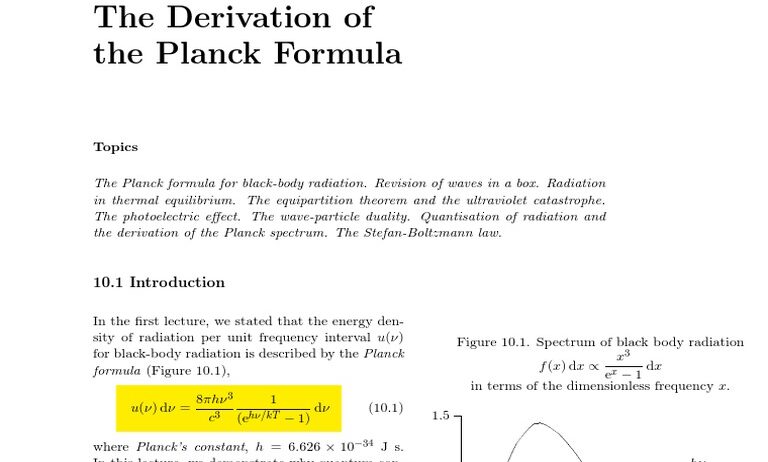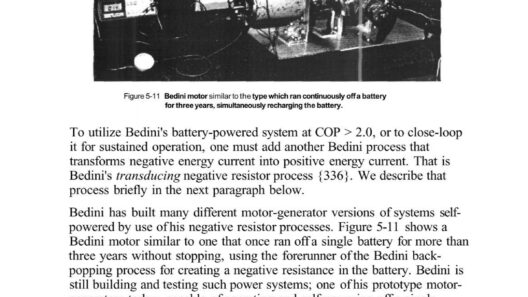In the realm of physics, the concept of blackbody radiation presents an intriguing conundrum, particularly when juxtaposed with the principle of energy conservation. At first glance, one might ponder: does blackbody radiation contradict the conservation of energy? To explore this question, we must first define what a blackbody is, the nature of its radiation, and how these principles intersect with thermodynamic laws.
A blackbody is an idealized physical object that perfectly absorbs all electromagnetic radiation incident upon it, regardless of frequency or angle. Not only does it absorb all incoming radiation, but it also emits radiation in a characteristic spectrum that depends solely on its temperature. This spectrum is described by Planck’s law, which elucidates the intensity of radiation emitted at various wavelengths.
Blackbody radiation is a quintessential example of thermal radiation experienced by bodies in equilibrium. As an object heats, it radiates energy, and the amount of energy radiated increases with the object’s temperature. Notably, a blackbody emits energy according to the Stefan-Boltzmann law, which states that the total energy radiated per unit surface area is proportional to the fourth power of the blackbody’s absolute temperature. This relationship presents a fascinating interplay between temperature and energy emission.
Now, consider the conservation of energy principle, which asserts that energy cannot be created or destroyed, only transformed from one form to another. This principle governs various physical processes, ensuring that the total energy in a closed system remains constant. At this junction, one might muse: if a blackbody continuously emits energy as it radiates heat, does this phenomenon not violate the conservation of energy? In essence, a blackbody seemingly loses energy in the process of emitting radiation. Thus, a challenge emerges: how does a blackbody maintain equilibrium while conforming to the conservation of energy?
The resolution lies in understanding that a blackbody does not violate energy conservation; instead, it exemplifies the transformation of energy types. When a blackbody radiates heat as electromagnetic waves, the energy it emits is drawn from its thermal energy reservoir. Thus, as a blackbody loses energy through radiation, its temperature gradually decreases. This phenomenon entails a delicate balance where the absorbed energy—derived from an external source—matches the energy radiated away. Hence, energy conservation remains intact. If the incoming energy input equals the outgoing energy output, the system reaches a steady state, where no net energy is lost.
To further elucidate this concept, consider a practical analogy: a pot of water on a stove. As the stove heats the pot, thermal energy is transferred to the water, raising its temperature. Simultaneously, the pot radiates heat into the surrounding environment. If the heat from the stove precisely compensates for the heat radiated away, the temperature of the water remains stable. In this case, we observe the conservation of energy reflected in the balance between absorbed and emitted energy.
Delving deeper into the implications of blackbody radiation reveals more nuanced conflicts and resolutions regarding thermodynamic principles. At absolute zero, a theoretical temperature where no thermal energy exists, a perfect blackbody would cease to emit radiation. Nonetheless, as any object is heated, it emits radiation according to the laws of thermal dynamics. This leads to the question: what occurs when a blackbody is isolated? Can it maintain equilibrium when surrounded by nothingness? The answer underscores the cooperative relationship between temperature, energy flow, and the principles of thermodynamics.
Moreover, the challenges posed by blackbody radiation extend to fields like quantum mechanics and relativity. The advent of quantum theory necessitated a reexamination of classical mechanics, especially concerning energy quantization. Max Planck’s groundbreaking work introduced the concept of quantized energy levels, explaining that energy is emitted in distinct packets or quanta. As blackbody radiation highlighted the limitations of classical theories, a paradigm shift emerged, establishing quantum mechanics alongside traditional laws of conservation. This intersection of blackbody radiation and quantum theory exemplifies how evolution in scientific understanding can enhance our comprehension of fundamental principles.
As part of the broader discourse on energy and its conservation, it is essential to examine practical applications of blackbody radiation. The principles governing blackbody radiation hold significant implications for modern technology, impacting fields such as thermography, astronomy, and climate science. For example, researchers utilize blackbody radiation models to understand stellar phenomena, assessing the thermal emissions of celestial bodies. Similarly, the principles of blackbody radiation inform climate scientists in constructing models that predict Earth’s radiation balance and its interactions with solar energy. In these contexts, the concept does not merely remain theoretical; it informs vital scientific inquiries and technological advancements.
In conclusion, the examination of blackbody radiation does not reveal a contradiction in the conservation of energy but instead enriches our understanding of thermodynamics. Blackbody radiation serves as a profound reminder that energy transformation is ubiquitous in our universe. The critical interplay between absorbed and emitted energy maintains the equilibrium described by the conservation of energy principle. As we explore the intricate tapestry of energy and its manifestations, we are continually reminded of the fundamental laws that govern our physical world. The journey through these concepts invites further inquiry and a deeper appreciation for the complexities of energy conservation. Thus, rather than posing contradictions, blackbody radiation reinforces our understanding of how energy operates within the cosmos.





